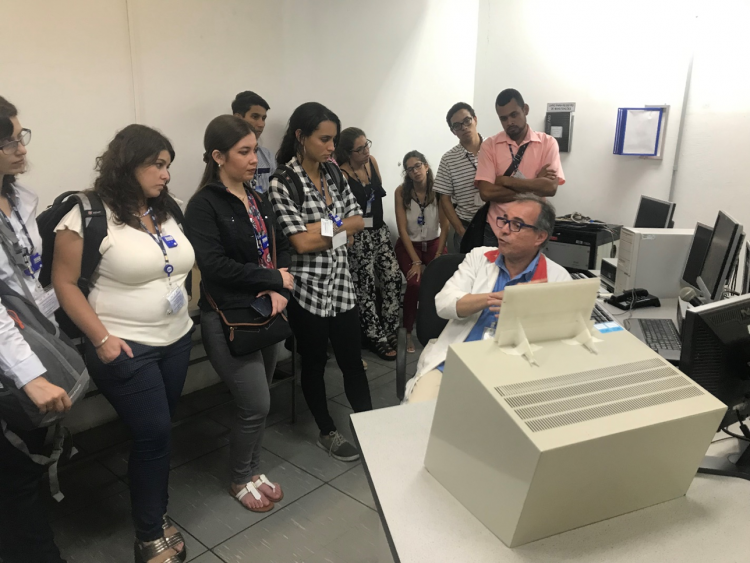Nuclear science and technology is applied in many different sectors in Latin America and the Caribbean, including public health, manufacturing, food production, environment control, scientific research and many other essential economic sectors. National nuclear institutions (NNI) in each country bring stakeholders together, ensuring that existing nuclear services address market needs, and that each economic sector is aware of how scientific advancements and innovations in nuclear science and technology can provide them with support in the future.
A new IAEA e-learning course, developed in cooperation with the Argonne National Laboratory (ANL), has been launched to equip young nuclear professionals in the region with the skills to strategically manage the development, operations and financing of nuclear technology services, ranging from radioisotope production to instrument calibration services, or from food irradiation to multielement analysis of various samples and objects, among others. The goal is to ensure capacity to meet national needs today and well into the future. The e-learning course is free, and is open to who is interested in the topic of strategic and business planning within the nuclear field.
Virtual training for young professionals
Launched in December 2021, the new e-learning course presents 23 lectures in 10 modules. These modules begin by introducing online students to the fundamental principles of strategic planning, explore stakeholder management, and finally conclude with lessons on finance, outreach and change management.
Strategic planning is indispensable for national nuclear institutions that aim to respond to stakeholder needs, explained Danas Ridikas, Head of the Physics Section in the IAEA’s Department of Nuclear Sciences and Applications. “It is a process used by organizations to identify their goals, the strategies necessary to accomplish them and the internal management systems used to monitor and evaluate progress.”








